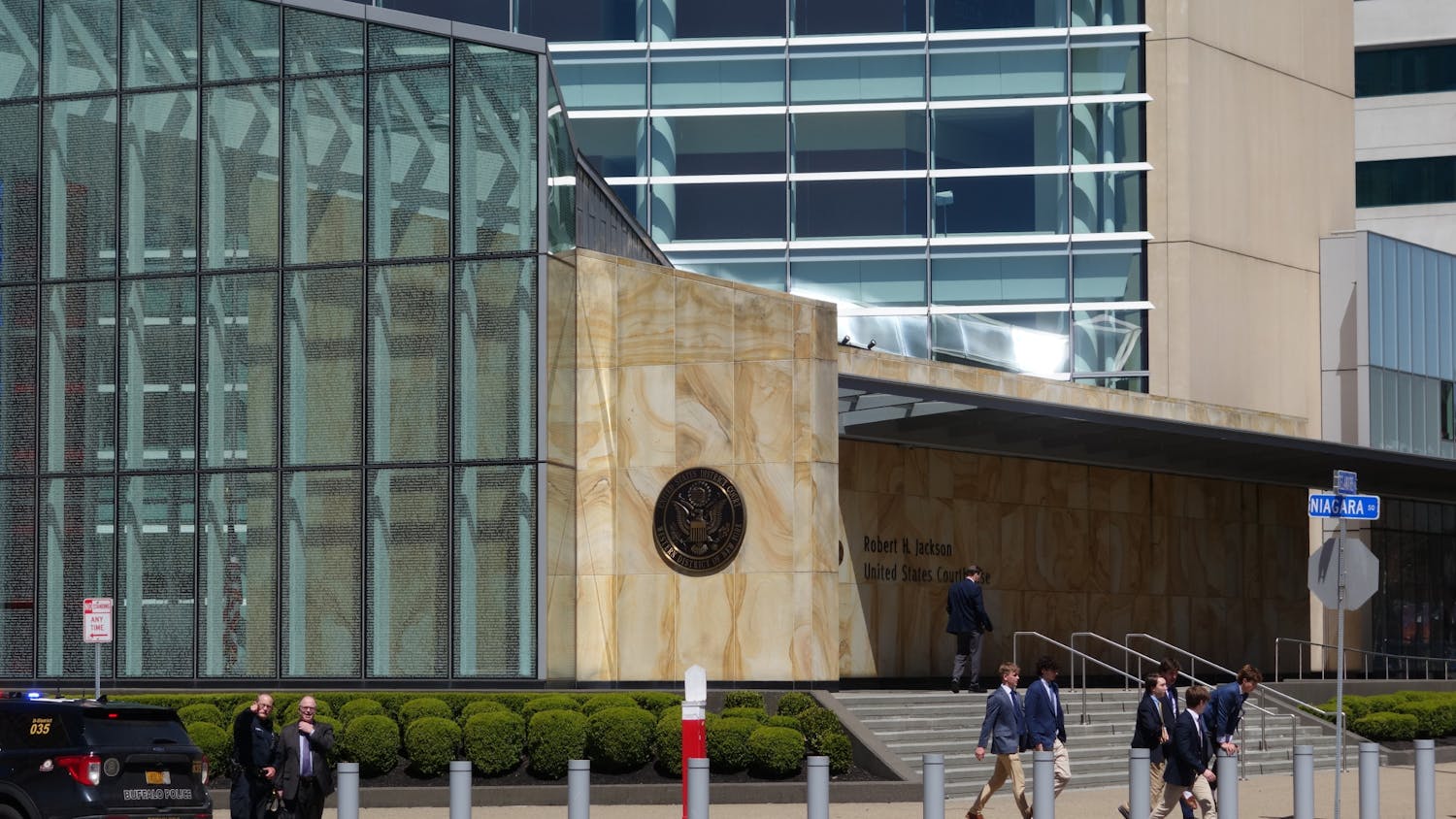A world in which public radio doesn't exist is not a scene that WBFO, an affiliate of National Public Radio, hopes to ever see in Buffalo.
According to the station's program director David Benders, WBFO's average listener is aged between 45 and 50. In order to lure more of the younger generation to the station, WBFO is working toward a new high definition system, similar to the ones being used by many commercial radio stations in Buffalo.
"HD, is not (only) hi-def, but a way for radio to survive in light of new technologies like iPods, satellite radio and web-stream," Benders said. "HD allows us to broadcast digitally and offer more than one channel."
Benders calls HD the first step toward broadcasting digitally, adding that it will hopefully create a wider demographic. HD will also allow the station to broadcast in an all news channel format, as well as an all-music channel. The addition will create a versatile news-music stream.
"This will allow people to find exactly what they're looking for more readily, and thereby broaden the audience," Benders said.
In order to secure the HD system, WBFO first had to gain the funds for such a large venture. The Cameron Baird Foundation donated $20,000 earlier this month. In addition, the Corporation for Public Broadcasting gave $62,000 to the cause, matching the New York State Education Department's $62,000 donation. UB faculty and staff also donated $7,000.
"We think it's going to be a great service to people," said WBFO's vice president, Carole Petro. "People have individual tastes, and it'll give them an opportunity to decide if they want to listen to music only, to news, or to the station we currently present. It's a wonderful progression of radio, and a great service to the community."
The staff at WBFO takes great pride in the history of the station.
"WBFO is one of the founding stations of the NPR and started in 1971," Petro said, "It has a terrific history and will have a great legacy."
Benders now has his focus on the future and the soon to be youthful audience.
"There are certain programs that are coming soon that will attract younger people," Benders said, "'This American Life' with Ira Glass will be coming to the Center For the Arts in February and I think this is a great example."
All of the improvements to WBFO 88.7 FM appear to be carrying the station toward a bright future.
"Our hope is that we will stay abreast of all the changes of radio and will continue to be in the forefront of radio," Petro said.
WBFO, usually housed in Allen Hall on South Campus, has been temporarily relocated to trailers outside the hall (sans disc jockeys, who continue to broadcast from inside the studio) as a result of a $3 million renovation.
"The project involves the complete replacement of all the hall's old windows," said Rhonda Grapes, the station's project manager for planning and design.
The project is in the works well past the date of completion as a result of complications including air conditioning and ventilation systems.
"We anxiously await someday when we can move back into our permanent facilities at Allen Hall," said David Benders, program director.
According to Grapes, despite the setbacks with construction and a pending future renovation "still in the planning stages," WBFO is determined to continue its service to the community of Buffalo and its listeners.





